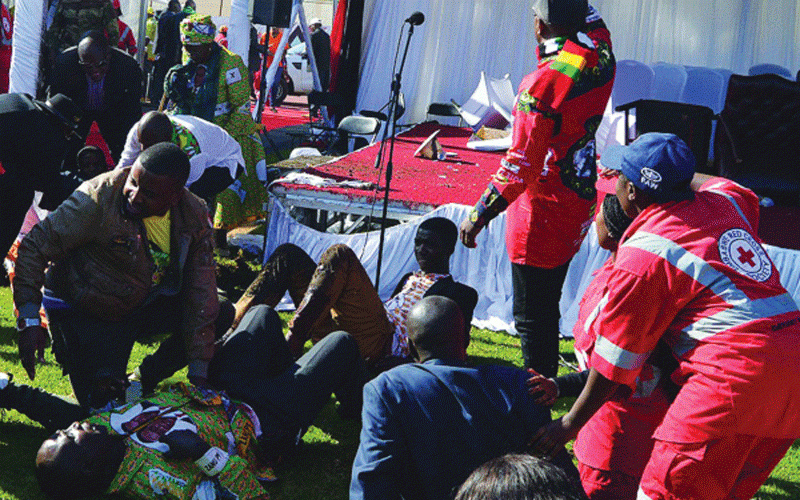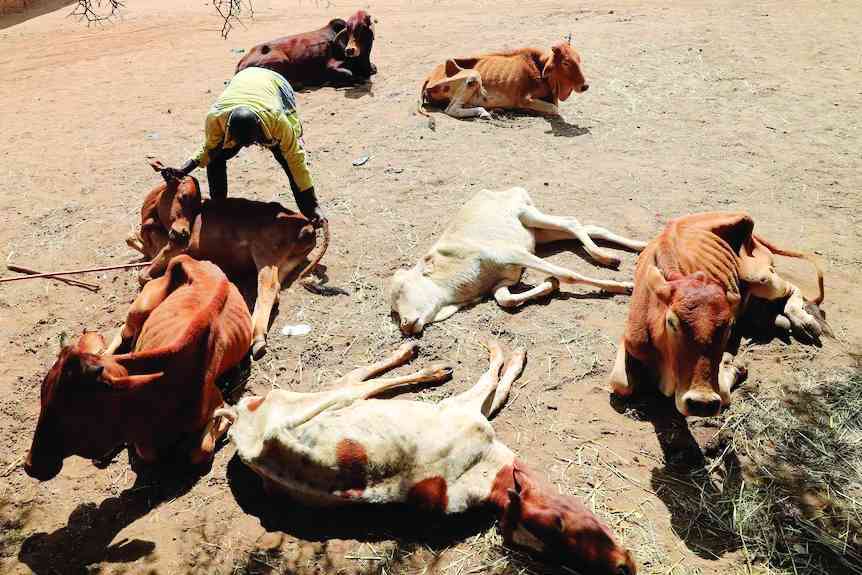
Since his rise to power in Zimbabwe, President Emmerson Mnangagwa has been the target of several mysterious attacks by unknown assailants.
Despite police investigations, the perpetrators of these incidents have never been brought to justice, leaving many questions unanswered and concerns about the president's safety unresolved.
One of the most high-profile attacks on Mnangagwa occurred in 2018, shortly after he assumed the presidency following the ousting of longtime ruler Robert Mugabe.
In June of that year, an explosion rocked a campaign rally that Mnangagwa was attending in Bulawayo.
The blast killed at least two people and injured dozens more, including the president himself, who sustained minor injuries.
Investigations into the incident were launched immediately, with the government quick to label it an assassination attempt.
However, despite extensive probes by the police and security services, no one was ever conclusively identified as being responsible for the attack.
Theories and speculation were abound, with some suggesting it was the work of Mnangagwa's political rivals, while others pointed to potential involvement of rogue military elements still loyal to the Mugabe regime.
- Mr President, you missed the opportunity to be the veritable voice of conscience
- ED to commission new-look border post
- Zanu PF ready for congress
- EU slams Zim over delayed reforms
Keep Reading
But the Bulawayo bombing was not an isolated incident. Earlier, in 2017, Mnangagwa — who was then serving as vice president under Mugabe survived another apparent assassination attempt when his car was mysteriously tampered with, causing it to veer off the road.
Once again, the perpetrators behind this sabotage were never found.
Ultimately, the unresolved attacks on Mnangagwa highlight the fragility of Zimbabwe's political system and the profound challenges it continues to face.
Without credible investigations and transparent accountability, the country risks being consumed by a climate of fear, paranoia, and instability, one that could further derail its efforts to chart a more prosperous and democratic future.
On August 11 2017 while still VP, Mnangagwa was airlifted from a youth interface rally at Pelandaba Stadium in Gwanda after he started vomiting after being allegedly poisoned by a suspected hard metal arsenic toxin.
He ended up being admitted to a South African hospital, but survived the plot.
He later disclosed that he knew the culprits.
“I suspect as to who did it. They are still good friends of mine. I now suspect that they know that I know. It was called a hard metal arsenic toxin. That is the class of poison.
“And it is not easy to come up with it. They say it is colourless, tasteless and the areas where it could be found are possibly two.
“Three initially, professors in that area eliminated this one and it was left with two countries. Russia and Israel.
“So, it is possible it came from Russia,” Mnangagwa said in an interview with the Financial Times in Harare on January 16 2018.
On December 14, 2014, NewsDay carried the following report: “President Robert Mugabe on Wednesday made sensational allegations that there was an attempt to assassinate the newly appointed Zanu PF vice-president Emmerson Mnangagwa.
“Mugabe claimed that unknown assailants sprinkled cyanide in Mnangagwa’s office at the New Government Complex in Harare.
“The state broadcaster, ZBC, reported that the poison instead affected Mnangagwa’s secretary on entering the office on the morning of Mnangagwa’s promotion to vice-president. The secretary was rushed to hospital for treatment.”
Earlier that year, his Justice ministry office was broken into by unknown persons.
It was also noted that Mnangagwa’s offices despite having high-profile security had been broken into six times in the past years, but the perpetrators were yet to be identified and arrested.
After being fired on November 6 2017, Mnangagwa said he was tipped-off by friendly intelligence officials of another plot to kill him by hired snipers and he skipped the country through the porous Forbes border post in Mutare overnight through a landmine-infested route.
This was after border control officials denied him exit through the legal route. They also cocked their guns when he left the border, but spared him after an alleged scuffle between the gunman and one of his sons.
Recently the attacks have now gotten into the Mnangagwa's family. On Thursday last week NewsDay reported that police had said criminal cases involving attacks on President Emmerson Mnangagwa and some of his close family members are complex and required time to solve.
This follows the recent break-in at Tourism and Hospitality Industry deputy minister Tongai Mafidi Mnangagwa’s office in Harare on Monday night.
Two weeks ago, unknown suspects twice broke into the residence of one of Mnangagwa’s sons, David, and left behind bullets.
After the two break-ins, a fire broke out at the Finance, Economic Development and Investment Promotion deputy minister’s house in yet unclear circumstances.
Even after being put out, it reignited the following day.
Reports have also emerged that over the weekend, police fired gunshots after three people intruded into the President’s house, which is under construction at the intersection of Wheeldon Avenue and Crowhill Road in Helensvale, Borrowdale.
Police spokesperson commissioner Paul Nyathi last week told NewsDay that investigations into the cases were ongoing, subtly indicating that such cases needed time to solve.
“Investigations into such [cases] are complex. Some cases take time, while others take little time to solve,” he said.
“It is not that the police will not be doing their job or not giving their all to solve these cases, but it’s simply because investigations will still be ongoing.”
After having seen all these circumstances the ZRP has not found anyone accountable for these actions, could all these plots have been an inside job.
As Zimbabweans look to their leader for strength and stability in these turbulent times, the president's own personal security woes have become a troubling symbol of the nation's deeper malaise.
Until the truth behind these shadowy attacks is finally revealed, the spectre of violence and uncertainty will continue to loom over Zimbabwe's tumultuous political landscape.
*Gary Gerald Mtombeni is a journalist based in Harare. He writes here in his own personal capacity. For feedback Email garymtombeni@gmail.com/ call- +263778861608









